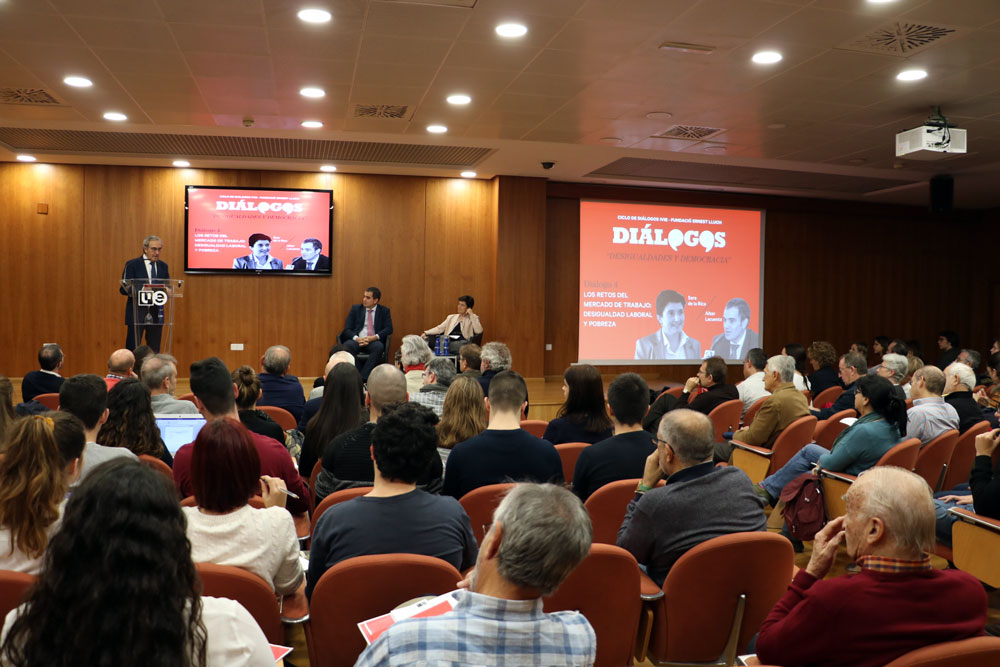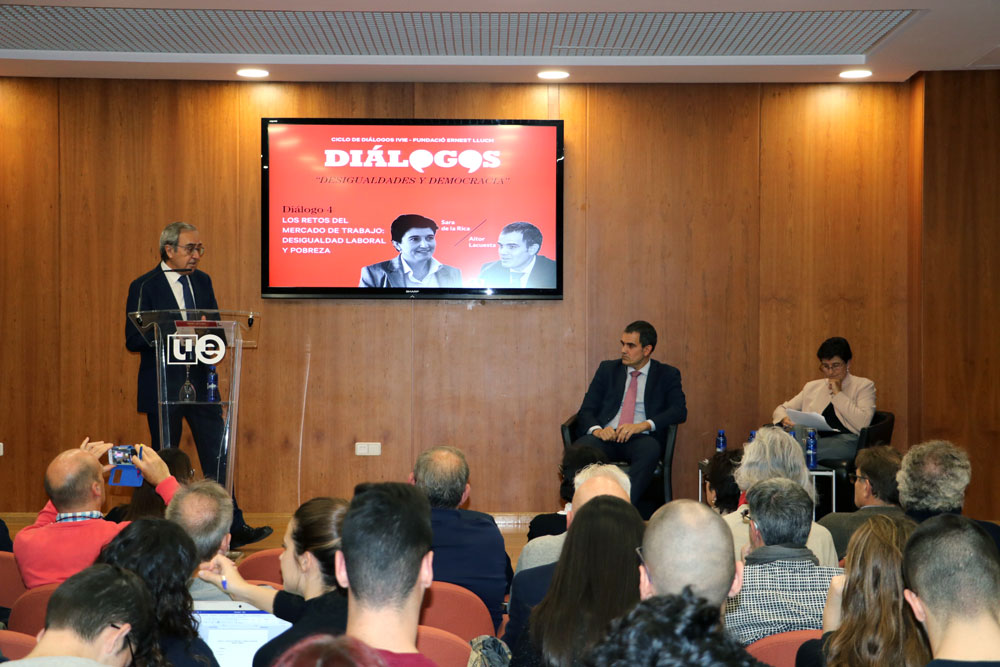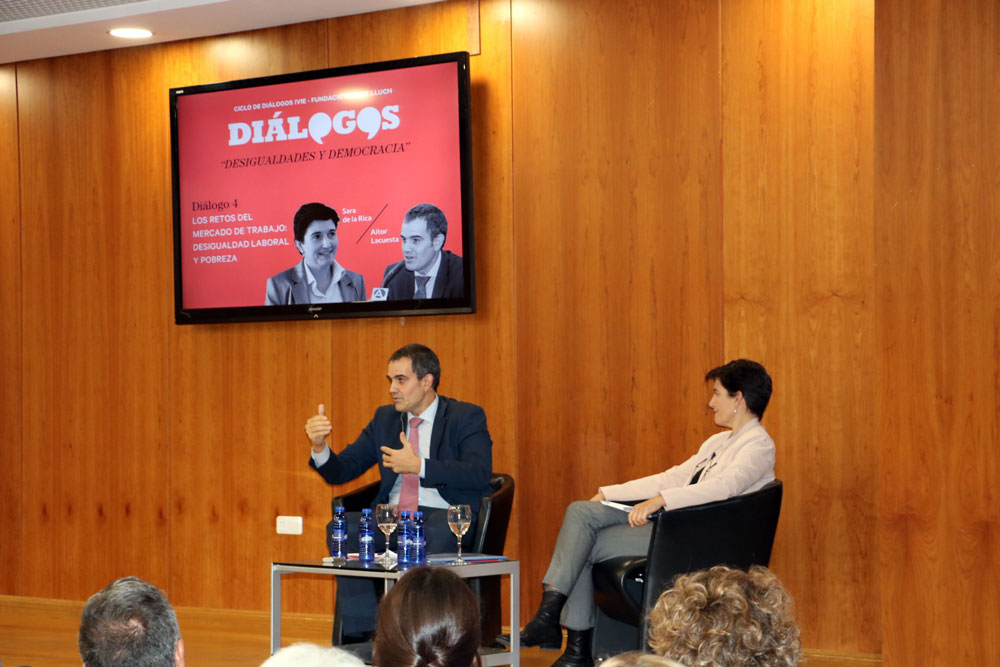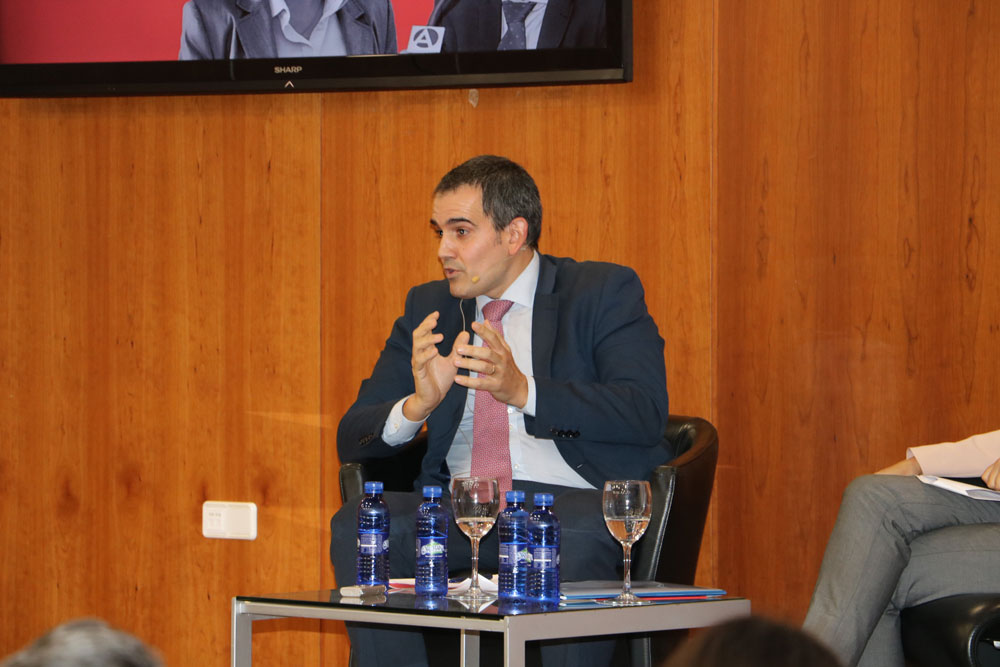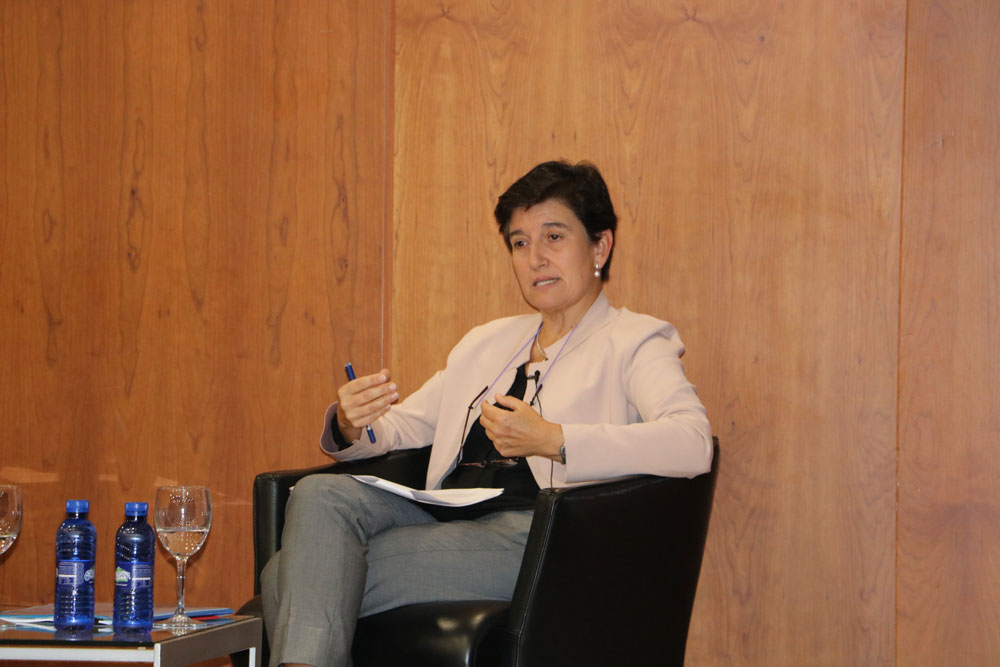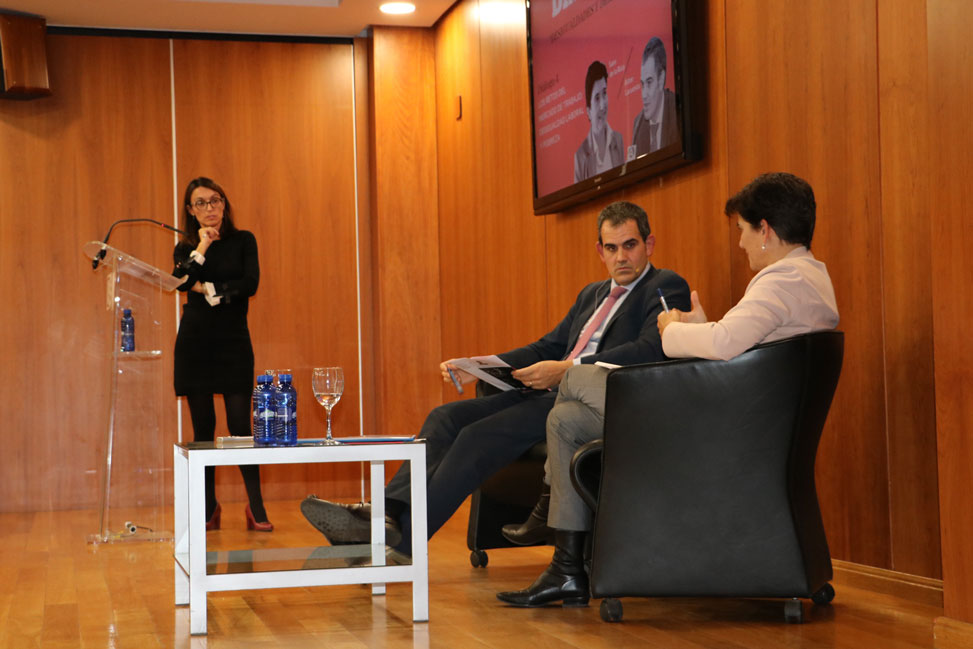Esta web utiliza cookies para que podamos ofrecerte la mejor experiencia de usuario posible. La información de las cookies se almacena en tu navegador y realiza funciones tales como reconocerte cuando vuelves a nuestra web o ayudar a nuestro equipo a comprender qué secciones de la web encuentras más interesantes y útiles.
News
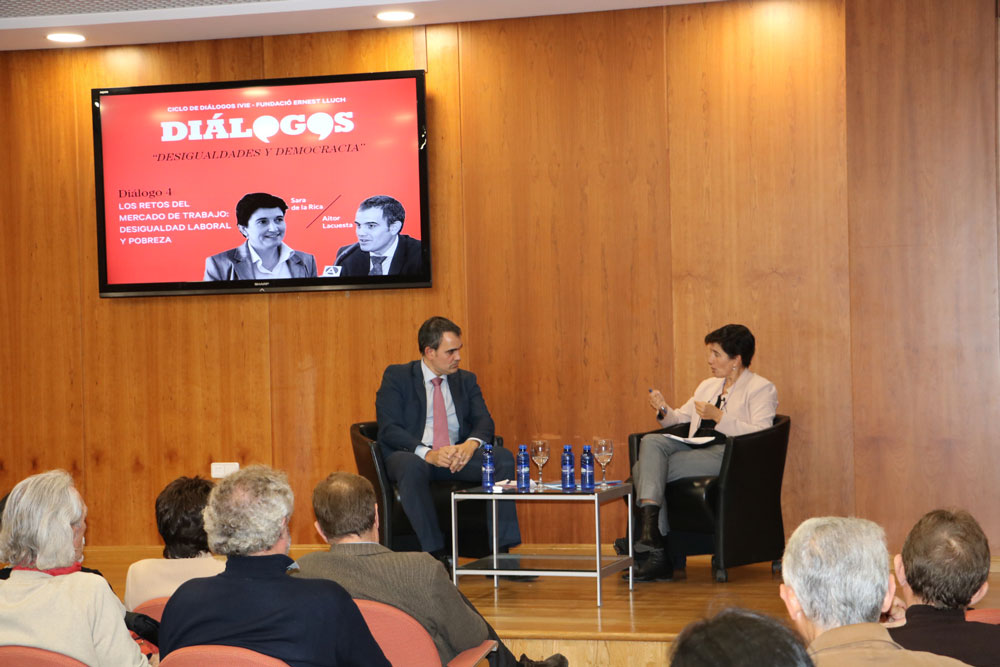
The time it takes for someone hired on a temporary contract to be made permanent has doubled since the crisis, reaching an average of eight years
Sara de la Rica and Aitor Lacuesta took the lead in the fourth of the 5 part series of dialogues on “Inequalities and Democracy” organized by the Ernest Lluch Foundation and the Ivie in Valencia
The Ernest Lluch Foundation and the Ivie continued their series 5 Dialogues on Inequality and Democracy with Sara de la Rica, Professor of Economics, Researcher at Fedea (Foundation for Applied Economics Studies) and key driver of ISEAK and Aitor Lacuesta, Head of the Bank of Spain’s Structural Analysis Division, on issues of inequalities in the labor market.
“Spain’s malfunctioning labor market accounts for 80% of the increase in the country’s inequality”, was how the Ivie’s Research Director, Francisco Pérez, introduced the fourth dialogue in the series, entitled Challenges facing the labor market: labor inequality and poverty. Sara de la Rica argued that the greatest injustice lies in the inequality of access to a decent career, which unfortunately is largely dependent on one’s family background.
Referring to the loss of three million jobs during the recent crisis, and despite the two million new jobs that have now been created, De la Rica identified those over the age of 45 as the demographic group to come off worst, many of whom are now in a situation of chronic unemployment and have exhausted their rights to unemployment benefit. “This is the real drama, one that affects almost a million people”, she added.
According to Aitor Lacuesta, the profound inequality in the labor market is due to problems like unemployment, forced reductions in working hours, and the proliferation of temporary contracts that affect the most vulnerable workers: those with the least training and qualifications and the lowest salaries.
Regarding work contracts, Sara de la Rica explained how since the crisis, the excessive use of temporary contracts has doubled the time it takes for a worker initially hired on a temporary basis to become a permanent employee. In 2007 the average period was 3 to 4 years; now it takes an average of 8 years to move onto a more stable type of contract.
According to the economics professor, “currently, public employment services have acted simply as unemployment registers, but they must take up the challenge of guiding, following up and training people who are out of work”. However, help must be available not only for the unemployed but also for those who are already working and should be given in-house training in their workplaces in preparation for the shift towards the technological changes imposed by the digital globalized world.
On the subject of technological change, De la Rica identified two factors that will have the most impact on employment: automation and artificial intelligence, both of which will replace people with machines. The key to adapting well to technical changes, she claimed, lies in creativity and innovation.
The two speakers also broached the subject of the proposed increase in the minimum salary. Aitor Lacuesta cautioned that a 20% rise in the minimum wage could entail a high risk of job losses among the least qualified and those for whom entering the job market is already difficult. In contrast, Sara de la Rica argued that while prior evaluation of the consequences of such a rise is necessary, “there must be minimum salaries that denote a level below which we, as a society, should not allow paid work”.


